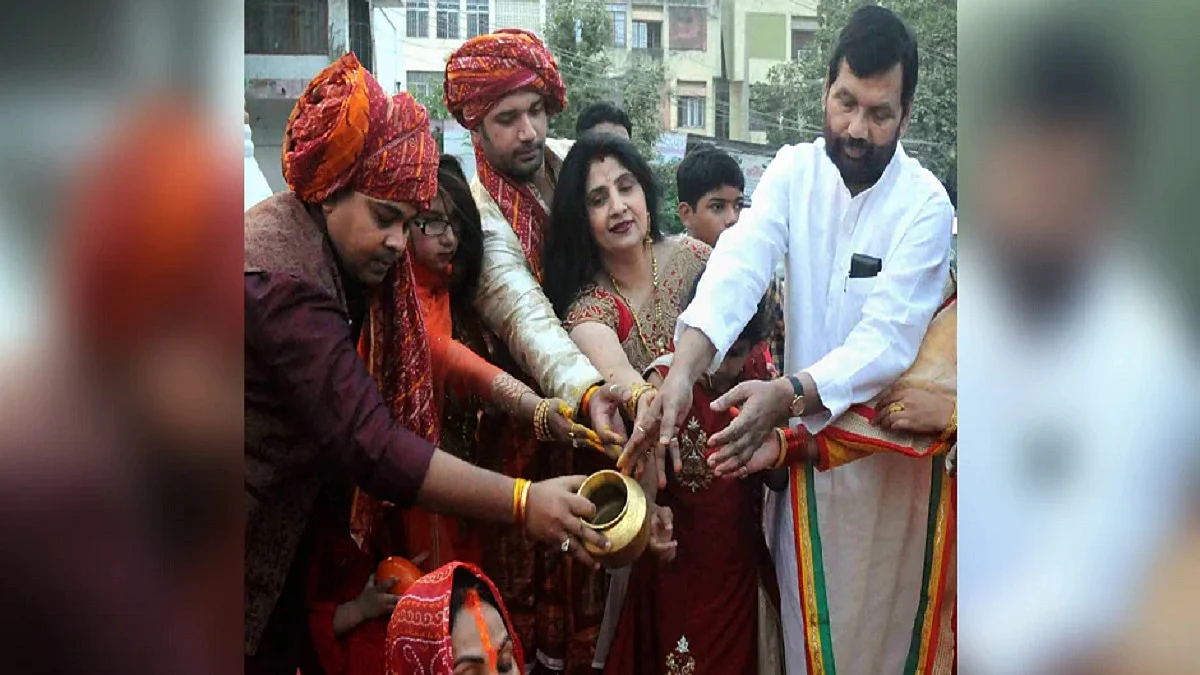Continuing relevance or irrelevance of Ram Vilas Paswan & his legacy in Bihar
Ram Vilas Paswan passed away in October 2020 and LJP pulled out of NDA and contested independently in the Bihar election. The revolt in LJP appears a prelude to crawling back to the NDA

Possibly the only point of interest in the dynastic drama of the Paswan family is if someone from the LJP will get a place in the Union cabinet, and if so who and when. But since Chirag Paswan had pulled the LJP out of the NDA before the Bihar election last year, there is no obligation for the BJP and the Prime Minister to accommodate anyone from the Paswan family in the cabinet in place of Paswan Senior.
It is no secret that Bihar Chief Minister Nitish Kumar would put his foot down on any move to take LJP headed by Chirag Paswan back into the NDA. He had borne the brunt of Chirag Paswan’s intemperate barbs in the election and the LJP, no doubt with some prodding from the BJP, damaged the JD(U) extensively in the poll. The ‘revolt’ by five of the six LJP Members of Parliament against Chirag Paswan is clearly aimed at facilitating the return of the LJP into NDA.
The ease with which the LJP rebels managed to call on the Lok Sabha Speaker and the alacrity with which the rebels were recognized by the Lok Sabha secretariat as a separate group is a pointer to the plan. Chirag Paswan’s plea that the party president had the exclusive right to appoint leader of the parliamentary party may not wash because it is said that a communication to this effect to the Speaker from the Chief Whip is enough.
There is unsurprisingly speculation in the media that Pashupati Paras, who has been anointed the party chief by the rebels, would be included in the Union cabinet and allotted the bungalow at 12, Janpath, which has been with the Paswan family since 1988.
But the rebellion by itself may not secure Pashupati Paras a berth in the Union cabinet. In Bihar the solitary LJP candidate out of 143 candidates to have won in the Assembly election, has already joined JD(U). The solitary LJP Member of the Legislative Council has walked over to the BJP. So, neither BJP at the Centre nor JD(U) in the state have much use of either faction of the Lok Janshakti Party, which does not seem to be in any position to bargain.
Indeed, the price that BJP may well demand Pashupati Paras pay for a Union cabinet berth is a merger. That would effectively marginalize a pressure group and with neither Paras nor Chirag commanding the support of a majority of Dusadhs, the caste Paswan belonged to, it would enable BJP to groom a Dalit leader from its own fold in Bihar.
Ram Vilas Paswan, despite serving as union minister under six Prime Ministers, could never emerge as the undisputed leader of Dalits in Bihar. He had to garner the support of upper caste Bhumihars and Rajputs to win and fielded a large number of upper caste candidates to swell numbers, several of them with dubious background. Nitish Kumar had also stolen his thunder by splitting Dalits into Dalits and Maha Dalits, helping other leaders to emerge.
Paswan apparently claimed that after Deve Gowda Government fell in the mid-nineties, late Hatkishan Singh Surjit offered him the Prime Minister’s position. But media gossip maintains that his second wife dissuaded him by saying that the government would not last long and after becoming the Prime Minister, he would not be able to serve as minister under someone else. Paswan therefore backed off. This timidity marked his politics all along. He was content to play second fiddle to anyone who allowed him that space.
Unlike Uttar Pradesh Bihar has had a Dalit chief minister in Bhola Paswan Shashtri, not once but three times although his tenures were short lived; but unlike UP, Bihar has never had a leader like Mayawati who was accepted as leader by most or all Dalit groups. The last time Bihar had a towering Dalit leader who commanded loyalty and allegiance of all Dalits was till Jagjivan Ram was alive. Even Ram Bilas Paswan never quite acquired the same stature.
Lalu Prasad Yadav, a contemporary, would openly call him ‘Bhog Vilas Paswan’ and often treated him with disdain. That Ram Bilas Paswan was fond of good things in life and had amassed wealth was again no secret. At election time apocryphal stories would emerge of how Paswan household had locked up in the outhouse a group of rustic constituents seeking to see him in Delhi because he was allegedly hosting a party. Or there would be stories of how other visiting constituents were pulled up for stepping on an expensive carpet in his official bungalow on Janpath.
What then is the legacy of Ram Bilas Paswan? And what possibly can his successors offer Dalits in Bihar? As media debates swirl around the importance of Dusadhs, six per cent of the voters, in Bihar’s politics, Dalits are getting marginalized in the state’s politics. Parties like Paswan’s face the very real threat of being swallowed up by conservative or centrist parties.
For Chirag Paswan it may not be enough to be his father’s son, or a better public speaker than others in his party or even to have age on his side. He risks political oblivion unless he soon manages to hitch his fortune to a more viable and sustainable future. There is wild speculation that he might join hands with Tejashwi Yadav of the RJD.
It is an interesting possibility that will be watched.
(The writer is Consulting Editor at National Herald. Views are personal)
Follow us on: Facebook, Twitter, Google News, Instagram
Join our official telegram channel (@nationalherald) and stay updated with the latest headlines
